Despite being around for ages, some places still have old-fashioned views and policies around payment methods. From only taking cash to refusing to touch the stuff, attitudes really may vary. But it never feels nice to be on the short end of any policy.
But one restaurant patron decided to put their regular spotto the test. After being constantly told that “it’s cheaper to pay with cash,” they waltzed in with a large stack of coins. Their malicious compliance earned them a decent amount of scorn from the readers, while some enjoyed their pettiness.
Depending on where you live, it might still be a tossup between using cash over a card
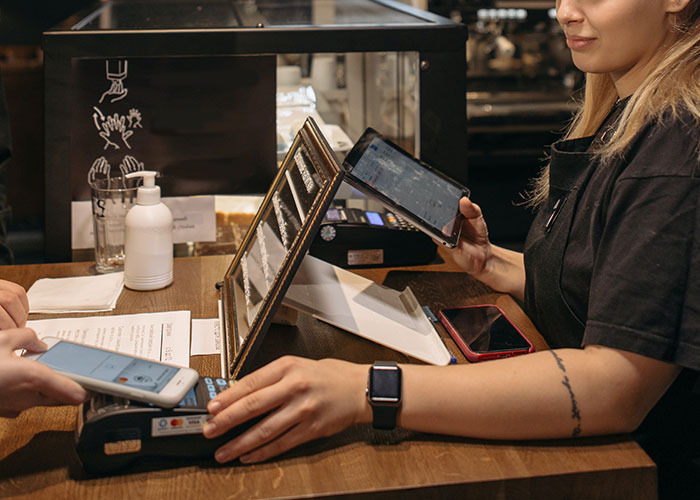
Image credits:Pavel Danilyuk (not the actual photo)
But one customer didn’t like a restaurant’s new policy, so they decided to put it to the test
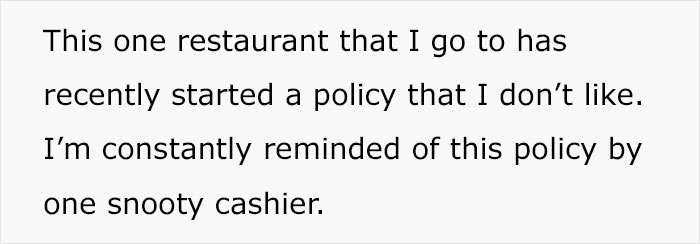
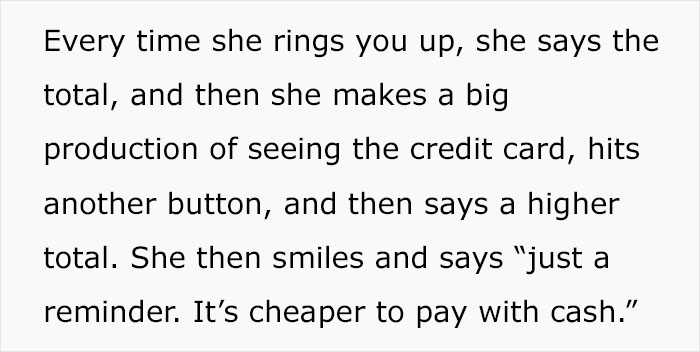
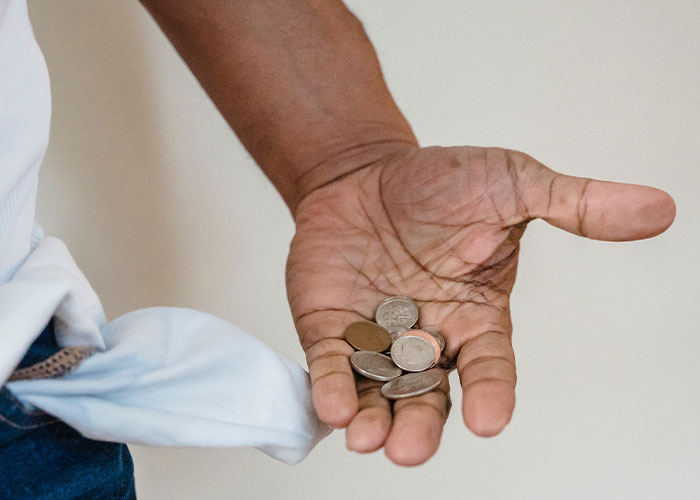
Image credits:Nicola Barts (not the actual photo)
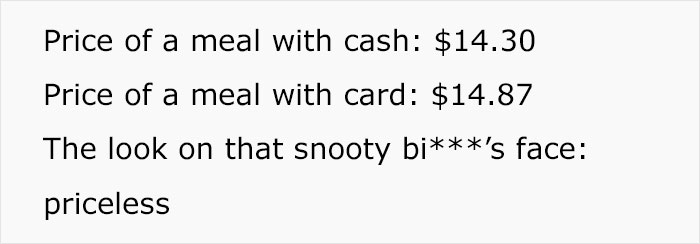
Image credits:AuroraItsNotTheTime
Attitudes toward payment methods can vary a lot
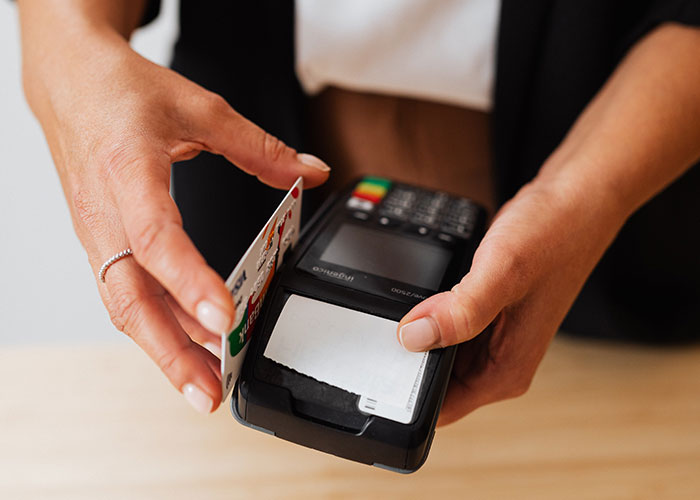
Image credits:Karolina Grabowska (not the actual photo)
Depending on where you are, attitudes towards cash can really vary quite a bit. For example, despite being a highly developed and industrialized nation, Germany is rife with “cash-only” businesses. Indeed, the Bundesbank, Germany’s central bank, believes thatover half of all purchasesuse cash instead of plastic.
Ironically, the same report found that more modern payment systems, like using one’s phone, Google account, or smartwatch were also taking off. Cards appear to be in a sort of middle ground where they are still seen as old-fashioned compared to more modern offerings, but also not as convenient as cash.
Cash can be associated with both stability and privacy

Image credits:Lukas (not the actual photo)
For example, Sweden is an almost completely cashless economy (only 6% of transactions use cash), which many citizens find highly convenient and helps with transparency and bookkeeping. However, there are a multitude of reasons why a business might actually prefer to use one method or the other.
Companies have their own reasons for preferring one option over another

Image credits:Marcus Aurelius (not the actual photo)
If a business uses just cash, the first impulse of many is to suspect that they simply want to avoid paying taxes. This is, unfortunately, quite often the case, but there are often transaction fees attached to purchases that interfere with a store’s margins. After all, it’s still better to lose a few customers than to actually take a loss on multiple transactions.
These will differ from place to place, as regulations around card use are not uniform. For example, in the nation of Georgia (Sakartvelo) cashiers will ask which bank you use, as they have separate payment terminals for each one. Naturally, using one bank’s terminal with another’s card will lead to a larger payment fee.
However, in all of these places, there is at least a certain standard that, once understood, helps guide the customer. If you happen to live in a place where nearly every location will have its own policy, you will probably end up like OP, unreasonably angry that something isn’t quite like you want it.
People gave their suggestions and thought OP was being unnecessarily combative


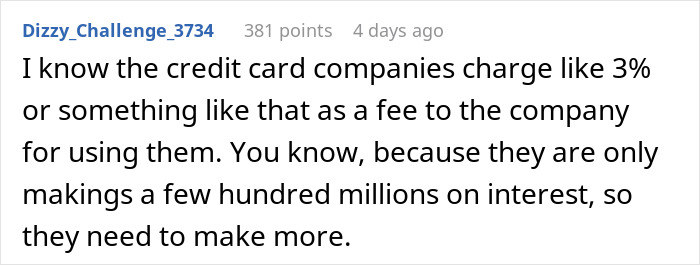
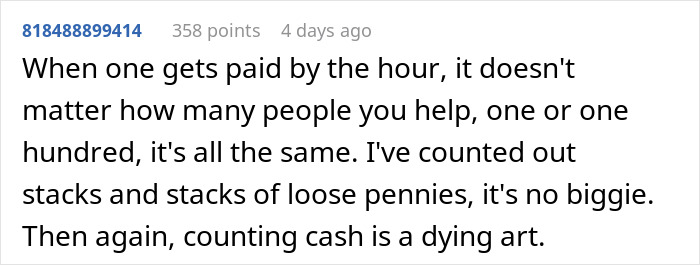


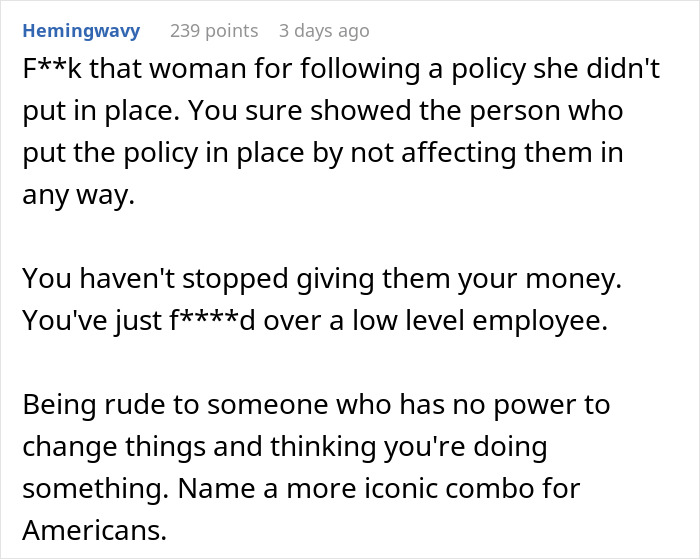


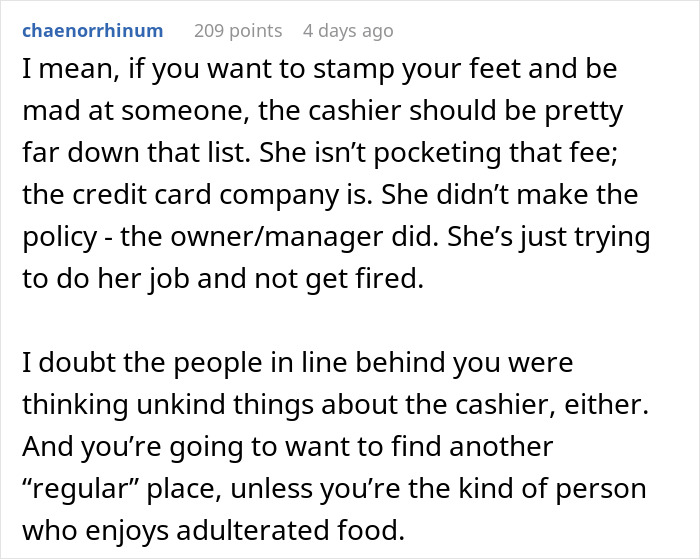
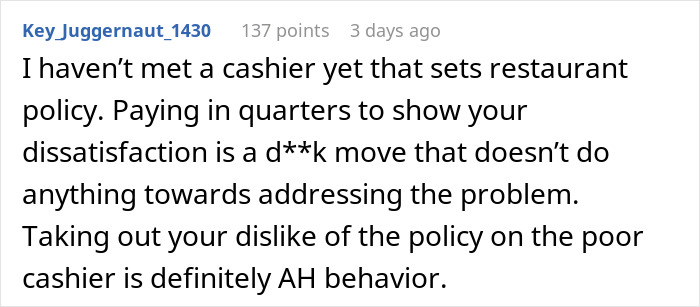
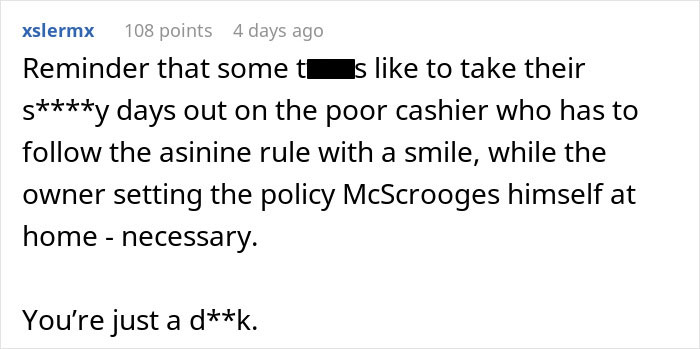
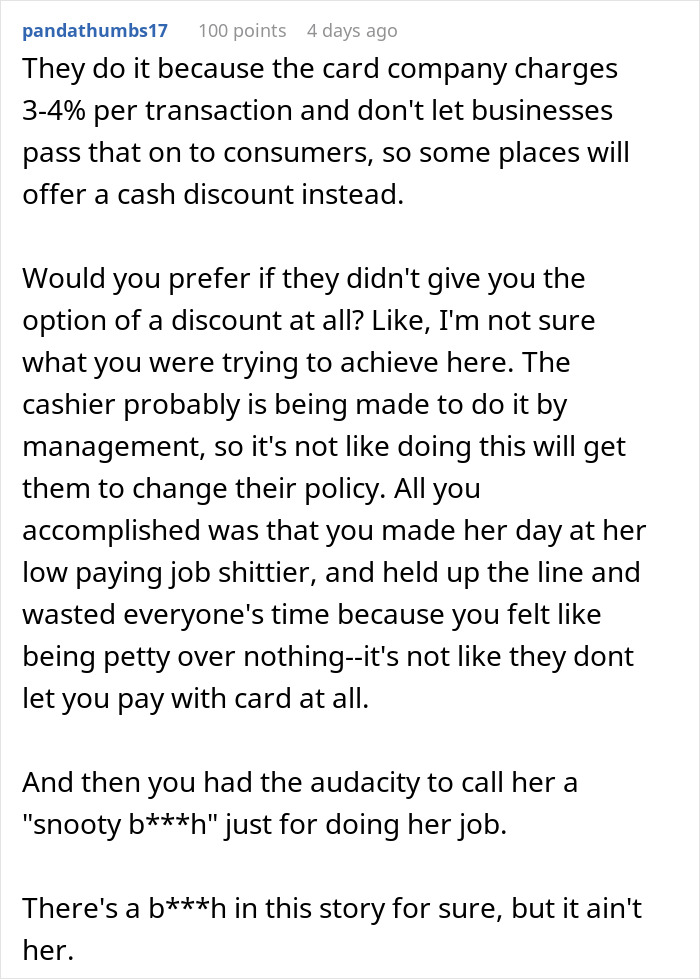


 You May Like30 Nightmarish Financial Decisions That Left People Broke, Broken, And BewilderedGabija Palšytė“This Is Just Evil”: Servers Share The Most Infuriating ‘Tips’ They’ve Ever ReceivedSimona Kinderytė30 Frugal Choices That Ended In Tears, Fires, And FiascosIlona Baliūnaitė
You May Like30 Nightmarish Financial Decisions That Left People Broke, Broken, And BewilderedGabija Palšytė“This Is Just Evil”: Servers Share The Most Infuriating ‘Tips’ They’ve Ever ReceivedSimona Kinderytė30 Frugal Choices That Ended In Tears, Fires, And FiascosIlona Baliūnaitė
Gabija Palšytė
Simona Kinderytė
Ilona Baliūnaitė
Work & Money